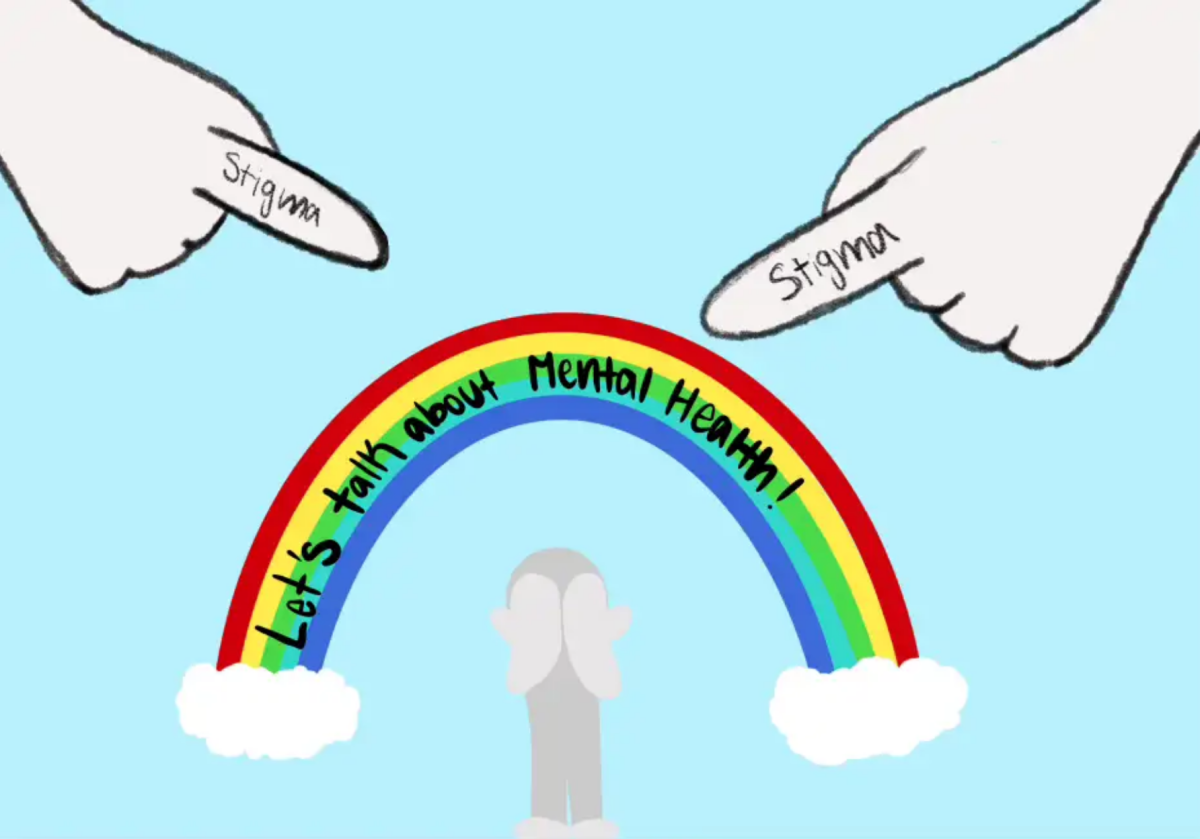In today’s fast-paced world, there is growing recognition of the impact that mental health has on our overall well-being. Although, despite the prevalence there continues to be a stigma that surrounds mental health issues, creating barriers that often deter individuals from seeking support and speaking up about their experiences.
Students should strive to understand mental health itself, especially the social and emotional pillars of it, as this will help them learn how to cope when problems arise. They should seek to understand the significance of being mentally healthy and what it means to take care of their mental well-being, beginning with being properly educated and well-informed of the right coping strategies that will lead to an overall better health for themselves.
“A stigma that I’ve noticed is the word in general— ‘mental health’— brings up this feeling in a lot of people,” Mental Health Specialist Mr. Gomez said. “And they think because they go see someone in mental health, that means they have a problem. And really, there’s a number of reasons why people come to see me: It’s not necessarily for the main diagnoses such as depression and anxiety. It could be just to process something, just to talk about something. But a lot of people stigmatize that.”
In addition, according to the National Health Institutes of Health, “Public stigma is the reaction that the general population has to people with mental illness. Self-stigma is the prejudice which people with mental illness turn against themselves”.
Often, students choose not to seek support for their mental health due to the anxiety of self-blame. Family dynamics, societal expectations, and cultural influences all play a role in shaping these students’ perceptions of their struggles and can lead to a cycle of isolation and internalized suffering, further exacerbating their mental health challenges.
By shedding light on these underlying factors and fostering a culture of acceptance and understanding, we can empower these individuals to seek the support they deserve.
On top of taking care of one’s own mental well-being, individuals should also explore how to support their peers with their emotional fitness. It is crucial to understand the significance of empathetic yet respectful assistance, beginning with an environment of acceptance and understanding.
By acknowledging boundaries, we create a safe space that lets individuals explore their own healing path; providing help that lines up with their comfort level. From there, we can create a supportive environment to facilitate their healing process.
“It’s definitely a learning process because when you want to be able to have respect for the person,” Senior Hasini Peyyala said. “Personally, I think it is a personal process to be a better person because it’s in that phrase. It’s you becoming a better person for yourself. I’ve learned to offer some advice and tips that have helped me but to not overstep any boundaries or try to give advice that specifically caters to me because I know everyone reacts to things differently and everyone has different healing methods. It’s not to give the bare minimum, but give what they’re able to take.”
Rather than approaching a peer’s difficulties with preconceived notions, they should try to offer a safe space where peers can feel heard and validated. Moreover, it’s essential to recognize that each individual’s journey toward mental wellness is unique.






